
Gbegamey: The Vibrant Heart of Cotonou
Gbegamey is a lively and bustling neighbourhood in the heart of Cotonou, Benin. Known for its vibrant markets, this area offers a true taste of local life. The streets are lined with vendors selling everything from fresh produce to handmade crafts, creating a colourful and energetic atmosphere that is both exciting and welcoming. One of the main attractions in Gbegamey is the Dantokpa Market, the largest open-air market in West Africa. Here, you can find a dizzying array of goods, including textiles, spices, and traditional Beninese art. Walking through the market is an adventure in itself, with the sights, sounds, and smells offering a sensory overload that is both overwhelming and exhilarating. Beyond the markets, Gbegamey is also home to several cultural landmarks and eateries. The local cuisine is a must-try, featuring dishes that are rich in flavour and tradition. From street food stalls to more formal dining establishments, there is something to suit every palate. The neighbourhood's vibrant nightlife scene, with its lively bars and music venues, ensures that there is always something to do, no matter the time of day.
Local tips in Gbegamey
- Visit Dantokpa Market early in the morning to avoid the crowds and get the best selection of goods.
- Try the local street food, especially the grilled fish and spicy peanut sauce.
- Wear comfortable shoes as you'll be doing a lot of walking.
- Keep an eye on your belongings, especially in crowded market areas.
- Learn a few basic French phrases; it will go a long way in communicating with locals.
Gbegamey: The Vibrant Heart of Cotonou
Gbegamey is a lively and bustling neighbourhood in the heart of Cotonou, Benin. Known for its vibrant markets, this area offers a true taste of local life. The streets are lined with vendors selling everything from fresh produce to handmade crafts, creating a colourful and energetic atmosphere that is both exciting and welcoming. One of the main attractions in Gbegamey is the Dantokpa Market, the largest open-air market in West Africa. Here, you can find a dizzying array of goods, including textiles, spices, and traditional Beninese art. Walking through the market is an adventure in itself, with the sights, sounds, and smells offering a sensory overload that is both overwhelming and exhilarating. Beyond the markets, Gbegamey is also home to several cultural landmarks and eateries. The local cuisine is a must-try, featuring dishes that are rich in flavour and tradition. From street food stalls to more formal dining establishments, there is something to suit every palate. The neighbourhood's vibrant nightlife scene, with its lively bars and music venues, ensures that there is always something to do, no matter the time of day.
Iconic landmarks you can’t miss
Red Star Square
Discover the cultural heartbeat of Cotonou at Red Star Square, a historical site where tradition meets vibrant local life.
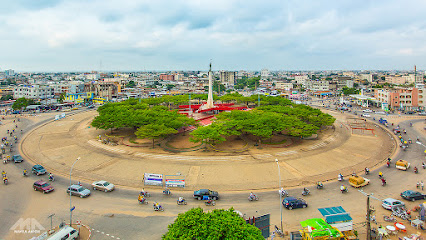
Place du Souvenir, ex Place des Martyrs
Explore the Place du Souvenir in Cotonou, a historical landmark celebrating the heroes of Benin amidst lush gardens and vibrant culture.
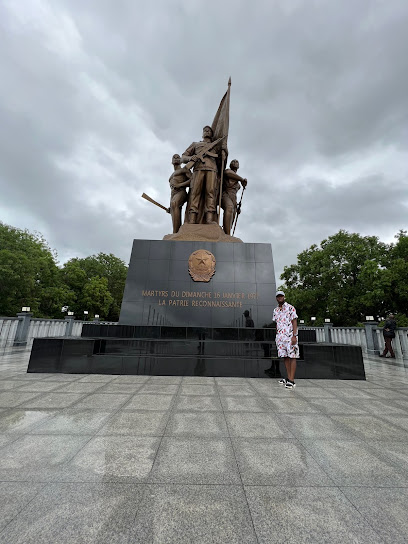
Bulgarian Square Georgi Dimitrov
Experience the heart of Cotonou at Bulgarian Square Georgi Dimitrov, a vibrant hub of culture, art, and local flavor that embodies the city's spirit.
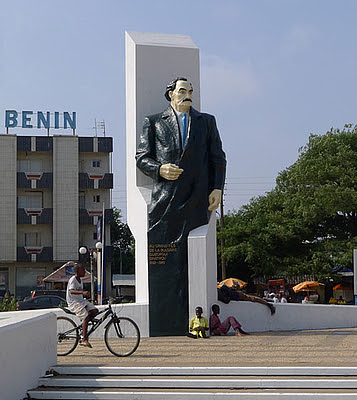
Esplanade des Amazones
Uncover the rich history and cultural significance of the Esplanade des Amazones, a stunning landmark in Cotonou, celebrating the legacy of Benin's Amazons.
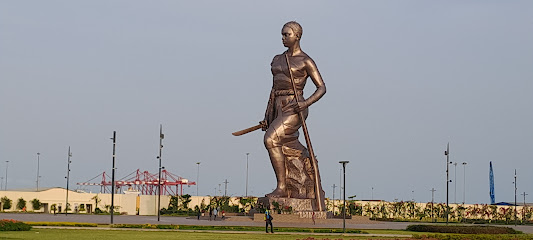
Monument Bio Guera
Explore the Monument Bio Guera in Cotonou, an iconic historical landmark that celebrates Benin's rich culture and history through stunning architecture.
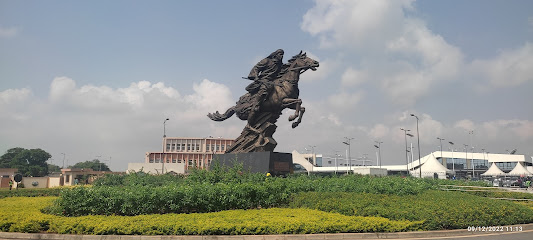
Place de l'amazone
Explore the Place de l'amazone, a historical landmark in Cotonou that tells the captivating tales of the legendary Amazons and local culture.
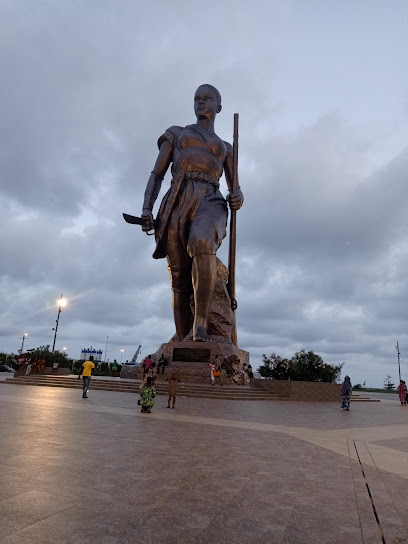
Monument aux Dévoués
Discover the Monument aux Dévoués in Cotonou, a powerful historical landmark honoring national sacrifices, rich in culture and heritage.
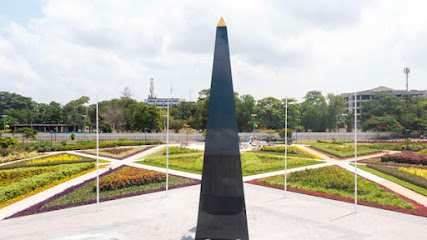
Statue Bio Guerra-Cotonou airport
Discover the Statue Bio Guerra in Cotonou, a symbol of resilience and heritage, offering a unique glimpse into Benin's rich history and culture.
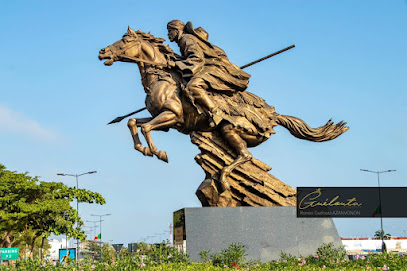
Place des Martyrs
Explore the rich history and cultural heritage of Benin at Place des Martyrs, a captivating museum in Cotonou offering immersive exhibits and serene surroundings.
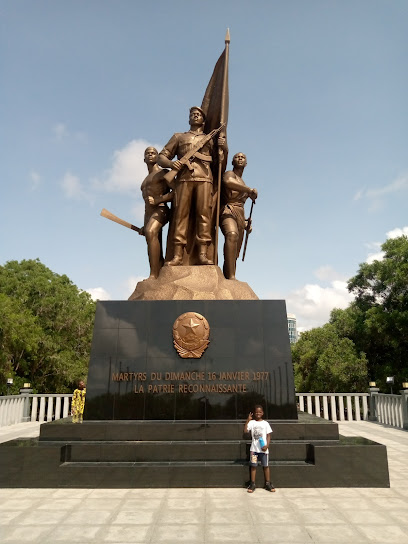
Gbegamey
Explore Gbegamey Playground in Cotonou, a vibrant family-friendly destination filled with fun activities, lush greenery, and joyful outdoor experiences.

Unmissable attractions to see
AgouaLand
Explore the vibrant world of AgouaLand, where amusement rides, historic charm, and wildlife come together for an unforgettable experience.
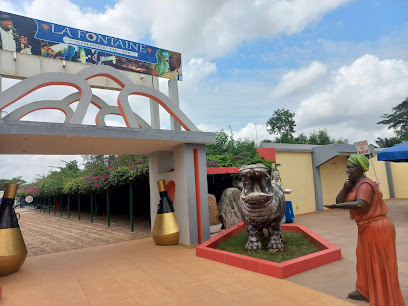
Corniche de Cotonou
Discover the beauty of the Corniche de Cotonou, a stunning promenade offering scenic ocean views, local culture, and delightful dining experiences.
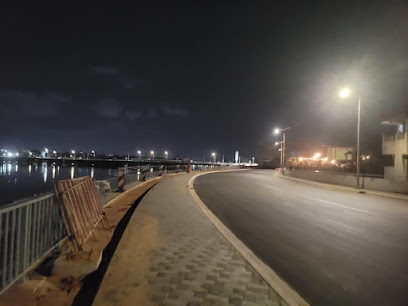
Essential places to dine
Carpe Diem Bar À Vins & Restaurant
Discover exquisite flavors at Carpe Diem Bar À Vins & Restaurant in Cotonou – where culinary excellence meets vibrant ambiance.
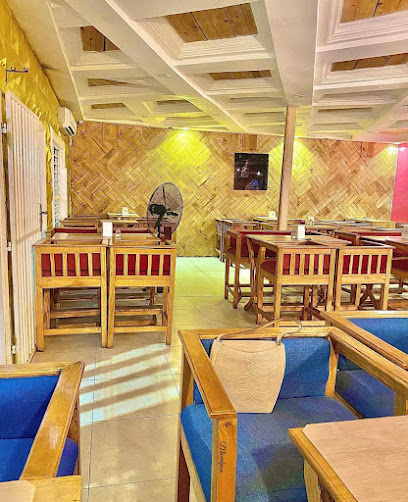
Restaurant Cabane d'AS
Experience authentic Beninese cuisine at Cabane d'AS in Cotonou - a culinary gem that celebrates local flavors and vibrant culture.
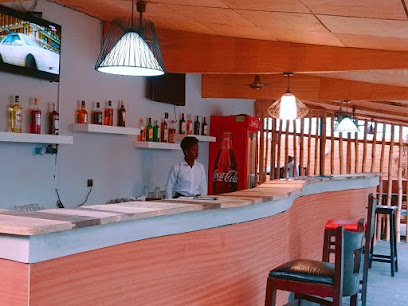
Restaurant THE MEET'S STORY
Discover the essence of African cuisine at The Meet's Story in Cotonou – where every dish tells a story.
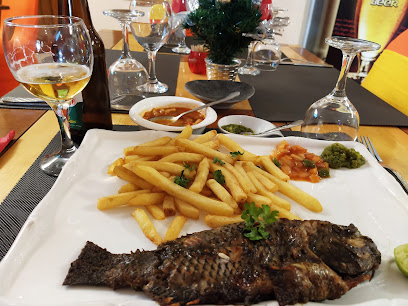
L'insolite
Experience the culinary delights of Cotonou at L'insolite, where local flavors meet international cuisine in a vibrant setting.
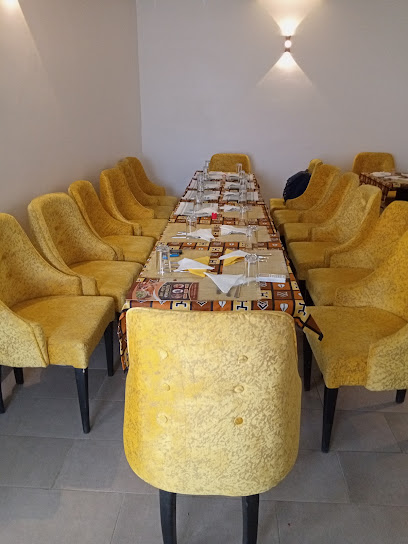
restaurant Insolite
Experience the rich flavors of Benin at Restaurant Insolite, where traditional meets modern in an unforgettable dining atmosphere.
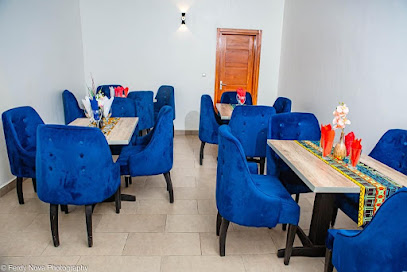
Bar restaurant chez DOGUÉ
Experience authentic Beninese cuisine at Bar Restaurant Chez DOGUÉ in Cotonou – where flavor meets culture.
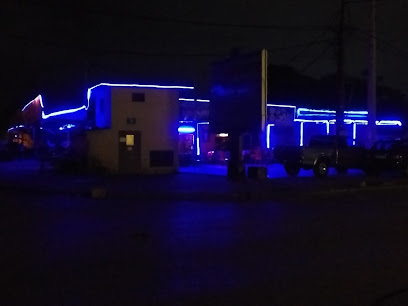
Maquis la baronne
Experience authentic Beninese cuisine at Maquis la Baronne, where vibrant flavors meet warm hospitality in the heart of Cotonou.
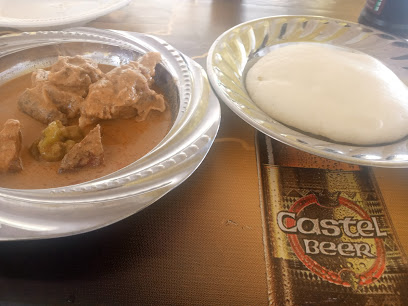
Chez Marielle
Discover authentic Beninese cuisine at Chez Marielle in Cotonou - where every dish tells a story.
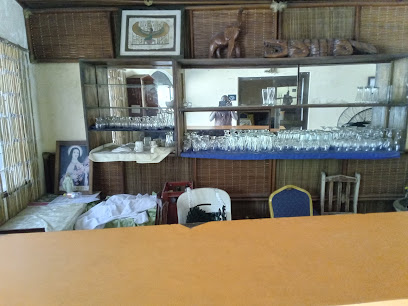
Restaurant Cotonou - Gbégamè
Experience authentic Beninese cuisine at Restaurant Cotonou - Gbégamè, where every dish tells a story of local flavors and culinary tradition.
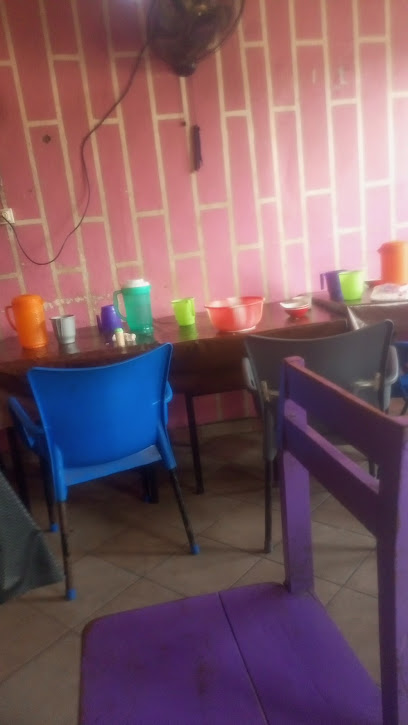
Restaurant
Discover authentic Beninese flavors in Cotonou's inviting restaurant, where culinary tradition meets warm hospitality for an unforgettable dining experience.

Markets, malls and hidden boutiques
ByPS.Creation
Explore ByPS.Creation, a unique boutique in Cotonou offering exquisite clothing and handcrafted leather goods that reflect local craftsmanship.
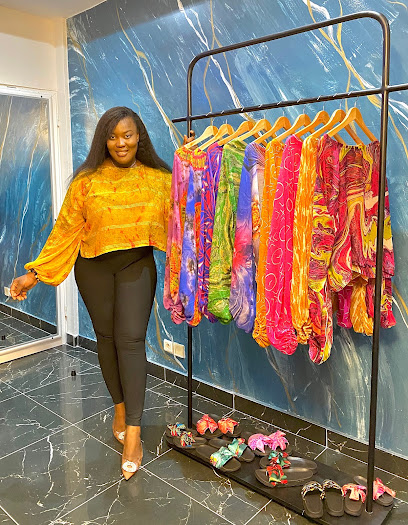
Couleurs et Style
Explore Couleurs et Style in Cotonou for a unique blend of local and international fashion, handbags, and shoes that define Benin's vibrant style.
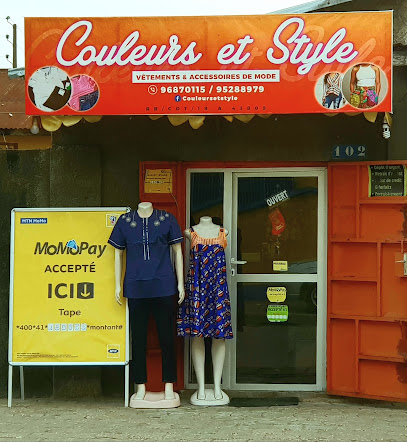
TASLY SHOP
Explore TASLY SHOP in Cotonou for an authentic health and beauty shopping experience, featuring natural products and exceptional service.
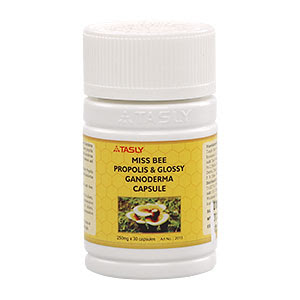
STIDE SHOP
Explore STIDE SHOP in Cotonou for a unique fashion experience, offering a blend of local culture and contemporary styles to elevate your wardrobe.
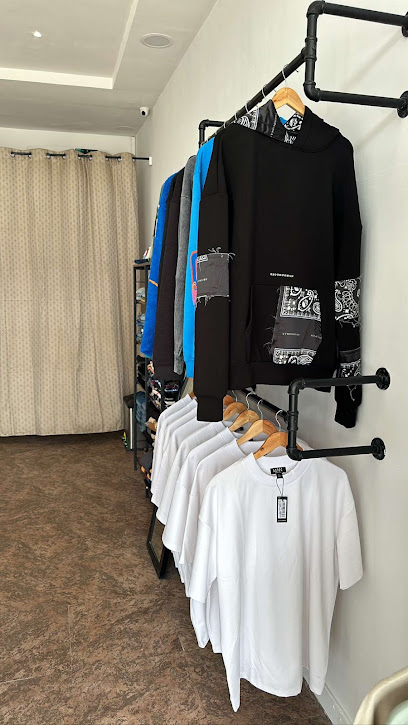
Boutique TEED
Discover unique Beninese fashion at Boutique TEED in Cotonou, where local craftsmanship meets contemporary style.
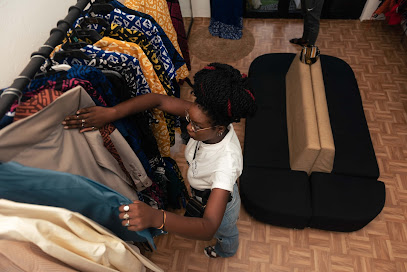
Baï GALLERY
Explore unique fashion finds at Baï GALLERY, a vibrant clothing store in Cotonou, blending local craftsmanship with contemporary style.
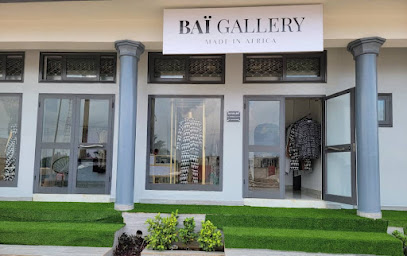
Nigerian Hand woven baskets
Explore the vibrant beauty and craftsmanship of Nigerian hand-woven baskets in Cotonou, a true reflection of cultural heritage and artistry.

CALINESS
Explore Caliness Gift Shop in Cotonou for unique souvenirs that embody the vibrant culture and artistry of Benin.

Marché des Arts de Cotonou
Discover the artistic heartbeat of Benin at Marché des Arts de Cotonou, where vibrant crafts and culture await every traveler.
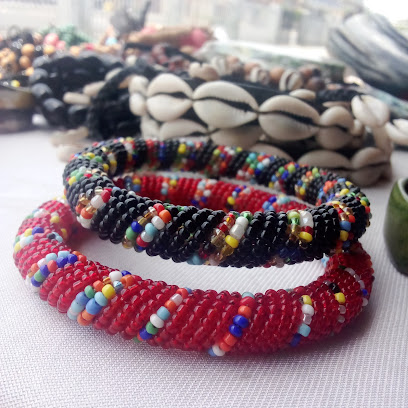
Boutique Prof
Discover authentic local crafts and unique fashion at Boutique Prof in Cotonou, a must-visit destination for cultural souvenirs.

Essential bars & hidden hideouts
Majestic
Majestic Bar in Cotonou: A lively nightlife destination where local flavors meet vibrant culture for an unforgettable experience.
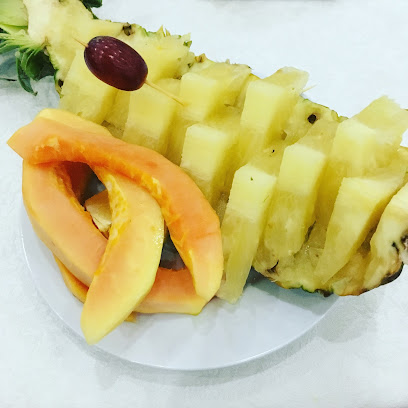
The Shark Bar
Experience the lively atmosphere of The Shark Bar in Cotonou, where great drinks, music, and a vibrant nightlife await you.
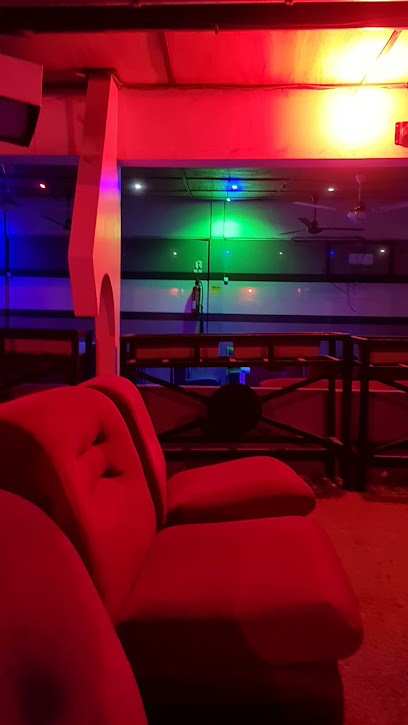
Maquis Les Grillades Gourmandes
Experience the vibrant ambiance and authentic flavors of Beninese cuisine at Maquis Les Grillades Gourmandes in Cotonou.
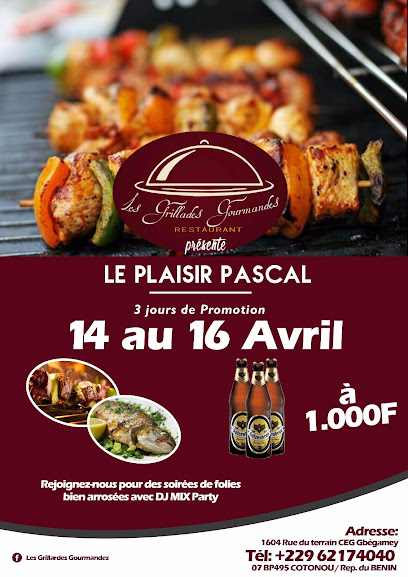
La réserve
Experience the vibrant nightlife of Cotonou at La Réserve, where great drinks and local charm create an unforgettable bar experience.
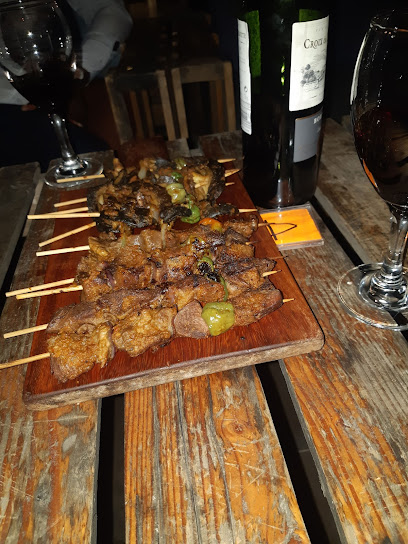
Bar Maquis chez Pascaline
Discover the vibrant nightlife and local flavors at Bar Maquis chez Pascaline in Cotonou, a must-visit destination for tourists seeking authentic experiences.

La Densité Bar
La Densité Bar in Cotonou offers a vibrant nightlife experience with a mix of local culture, music, and delicious drinks in an inviting atmosphere.
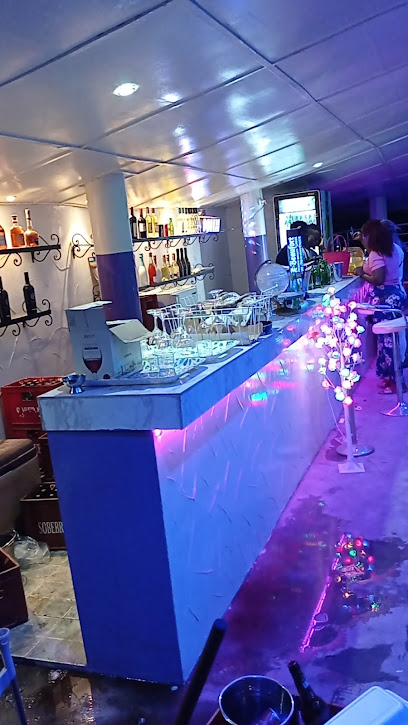
AJP
Experience the vibrant nightlife of Cotonou at AJP, where refreshing drinks and local culture come together in a lively bar atmosphere.
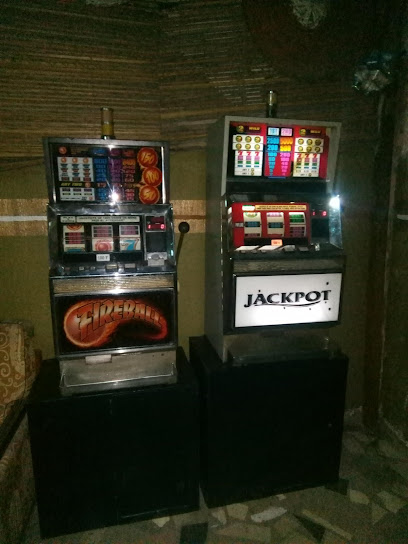
Dynamique Bar
Dive into the heart of Cotonou's nightlife at Dynamique Bar – where local culture meets vibrant entertainment.
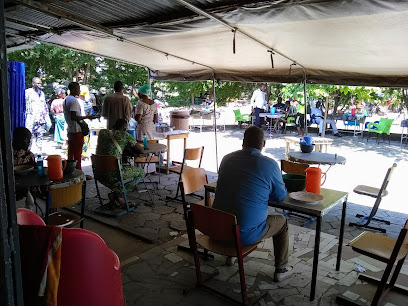
ULTIMATE EVENTS BENIN
Immerse yourself in the vibrant atmosphere of Ultimate Events Benin, where sports, local cuisine, and camaraderie come together in Cotonou.

Bar À Pizza
Discover the vibrant Bar À Pizza in Cotonou, where delicious pizzas and a lively atmosphere await you. A true taste of local culture!
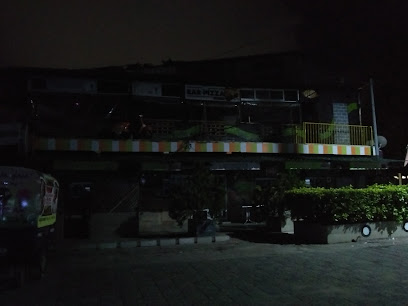
Local Phrases
-
- HelloKuabo
[Kwah-boh] - GoodbyeDaalu
[Dah-loo] - YesEe
[Eh] - NoAyi
[Ay-ee] - Please/You're welcomeMi kpo
[Mee kpo] - Thank youMèsi
[Meh-see] - Excuse me/SorryE jen
[Eh jen] - How are you?Nù kpé?
[Noo kpeh?] - Fine. And you?Mí rí. Àwò nù?
[Mee ree. Ah-woh noo?] - Do you speak English?E só yorùbá?
[Eh soh yoh-roo-bah?] - I don't understandKò fẹ́ rí
[Koh feh ree]
- HelloKuabo
-
- I'd like to see the menu, pleaseÈ fẹ̀ rí àsọ díè, ká fọn
[Eh feh ree ah-soh dee-eh, kah fohn] - I don't eat meatÈ kò ń je èyí
[Eh koh nje eh-yee] - Cheers!Àkọ́
[Ah-koh] - I would like to pay, pleaseÈ fẹ̀ rí à gbé, ká fọn
[Eh feh ree ah gbeh, kah fohn]
- I'd like to see the menu, pleaseÈ fẹ̀ rí àsọ díè, ká fọn
-
- Help!Èjìrè!
[Eh-jee-reh] - Go away!Gbọ́!
[Gboh] - Call the Police!Tẹlẹ ọ̀fẹ̀sí!
[Teh-leh oh-feh-see] - Call a doctor!Tẹlẹ dọ́kítà!
[Teh-leh doh-kee-tah] - I'm lostMo lo bọ̀
[Moh loh boh] - I'm illMọ̀ lọ́wọ̀
[Moh loh-woh]
- Help!Èjìrè!
-
- I'd like to buy...È fẹ̀ rí wọlé...
[Eh feh ree woh-leh] - I'm just lookingÈ ní wọlé
[Eh nee woh-leh] - How much is it?È tó báà wọlé?
[Eh toh bah wah-leh?] - That's too expensiveO yẹ́ wọlé
[Oh yeh wah-leh] - Can you lower the price?È le ṣí mọ ọ̀fẹ́ wọlé?
[Eh leh shee moh oh-feh wah-leh?]
- I'd like to buy...È fẹ̀ rí wọlé...
-
- What time is it?Kíni ó sáájú?
[Kee-nee oh sah-ah-joo] - It's one o'clockỌ̀kan sáájú
[Oh-kahn sah-ah-joo] - Half past (10)Ìsẹ́jú kárún (mẹ́wáádìí)
[Ee-sheh-joo kah-roon meh-wah-dee] - MorningỌ̀sán
[Oh-sahn] - AfternoonỌ̀wọ̀rọ̀
[Oh-woh-roh] - EveningỌ̀sán wọ̀nyí
[Oh-sahn woh-nee] - YesterdayÒna ọ̀sán
[Oh-nah oh-sahn] - TodayỌ̀ní
[Oh-nee] - TomorrowỌ̀la
[Oh-lah] - 1Ọ̀kan
[Oh-kahn] - 2Mejì
[Meh-jee] - 3Mẹ́ta
[Meh-tah] - 4Mẹ́rin
[Meh-reen] - 5Márùn
[Mah-roon] - 6Mẹ́fà
[Meh-fah] - 7Mẹ́je
[Meh-jeh] - 8Mẹ́jììn
[Meh-jee-een] - 9Mẹ́sán
[Meh-sahn] - 10Mẹ́wáádìí
[Meh-wah-dee]
- What time is it?Kíni ó sáájú?
-
- Where's a/the...?Ibá ni ...?
[Ee-bah nee] - What's the address?Kíni adírẹ̀sì?
[Kee-nee ah-dee-reh-see] - Can you show me (on the map)?È le fi mí sí (lọ álẹ́)
[Eh leh fee mee see loh ah-leh] - When's the next (bus)?Ní òun lẹ́ lọ?
[Nee oh-oon leh loh] - A ticket (to ....)Ètíkẹ́tì (sí ...)
[Eh-tee-keh-tee see]
- Where's a/the...?Ibá ni ...?
History of Gbegamey
-
Gbegamey, a vibrant neighborhood in Cotonou, has its roots deeply intertwined with the cultural and historical fabric of the region. Originally a fishing and trading hub, Gbegamey evolved as a settlement attracting diverse communities due to its proximity to the Atlantic coast and the port of Cotonou, which has been a crucial economic center since its establishment.
-
During the height of the Dahomey Kingdom in the 18th and 19th centuries, Gbegamey was significantly influenced by the socio-political dynamics of the time. As Cotonou served as a gateway for trade, the neighborhood became a melting pot of cultures, with interactions among various ethnic groups, including the Fon and Yoruba, enriching its cultural heritage.
-
In the late 19th century, with the arrival of French colonial powers, Gbegamey experienced rapid urbanization. The French established infrastructure and administrative frameworks, leading to changes in land use and the socio-economic landscape of the neighborhood. This period also saw the introduction of Western education and religion, which influenced local customs and traditions.
-
Following Benin's independence in 1960, Gbegamey became a focal point for cultural revival and political activism. The neighborhood witnessed a resurgence of traditional practices, and local festivals celebrating the rich history and heritage of the Fon people gained prominence. It became a hub for artists, musicians, and cultural enthusiasts, fostering a vibrant community identity.
-
Today, Gbegamey stands as a cultural crossroads, with a blend of modernity and tradition. The neighborhood is known for its lively markets, traditional dance performances, and art galleries showcasing local talent. It continues to play a vital role in the cultural landscape of Cotonou, reflecting the dynamic history and diverse influences that have shaped it over the centuries.
Gbegamey Essentials
-
Gbegamey is easily accessible from various neighbourhoods in Cotonou. You can take a taxi or use a motorcycle taxi (zemidjan) for a more adventurous option. For those coming from the city center, public buses (known as 'car rapides') run frequently and will drop you near Gbegamey. If you're coming from Cotonou's airport, a taxi is the most convenient way to reach the neighbourhood, taking approximately 20-30 minutes depending on traffic.
-
Gbegamey is relatively small and can be explored on foot. However, for longer distances, you can use local taxis or motorcycle taxis, which are plentiful and affordable. Bicycles can also be rented in some parts of Cotonou, providing a fun way to navigate the area. There are no trains operating within Gbegamey, but the bus system in Cotonou is reliable for reaching adjacent neighbourhoods.
-
While Gbegamey is generally safe for tourists, it's essential to stay alert and be cautious, especially at night. Avoid poorly lit areas and keep valuables secured. Some areas near the waterfront can be prone to petty crimes, so it's advisable to avoid them after dark. Always trust your instincts and if something feels off, seek a more populated area.
-
In case of an emergency, dial the local emergency number for police, fire, or medical assistance. It's advisable to keep a list of emergency contacts handy, including your embassy or consulate information. Familiarize yourself with the locations of nearby hospitals and clinics. For minor health issues, local pharmacies can provide over-the-counter medications.
-
Fashion: Do wear lightweight, modest clothing suitable for the warm climate. Don't wear overly revealing outfits, especially in religious settings. Religion: Do be respectful of local customs and traditions. Avoid taking photographs in worship places unless permitted. Public Transport: Do greet the driver when entering a bus and offer your seat to the elderly. Don't use your phone loudly or eat on public transport. Greetings: Do greet locals with a handshake, often accompanied by a friendly smile. Eating & Drinking: Do indulge in local dishes and accept invitations to share a meal. Don't waste food, as it is considered disrespectful.
-
To experience Gbegamey like a local, visit the bustling markets and try street food from local vendors. Engage with residents, who are often eager to share their culture and stories. Attend local events or festivals if your visit coincides with one, as this is a fantastic way to immerse yourself in the community. Don't hesitate to learn a few phrases in French or local languages, as this is appreciated and can enhance your interactions.
Nearby Cities to Gbegamey
-
Things To Do in Porto-Novo
-
Things To Do in Ouidah
-
Things To Do in Lokossa
-
Things To Do in Aneho
-
Things To Do in Lagos
-
Things To Do in Lomé
-
Things To Do in Abeokuta
-
Things To Do in Notse
-
Things To Do in Atakpamé
-
Things To Do in Ibadan
-
Things To Do in Kpalimé
-
Things To Do in Ho
-
Things To Do in Koforidua
-
Things To Do in Accra
-
Things To Do in Benin City








